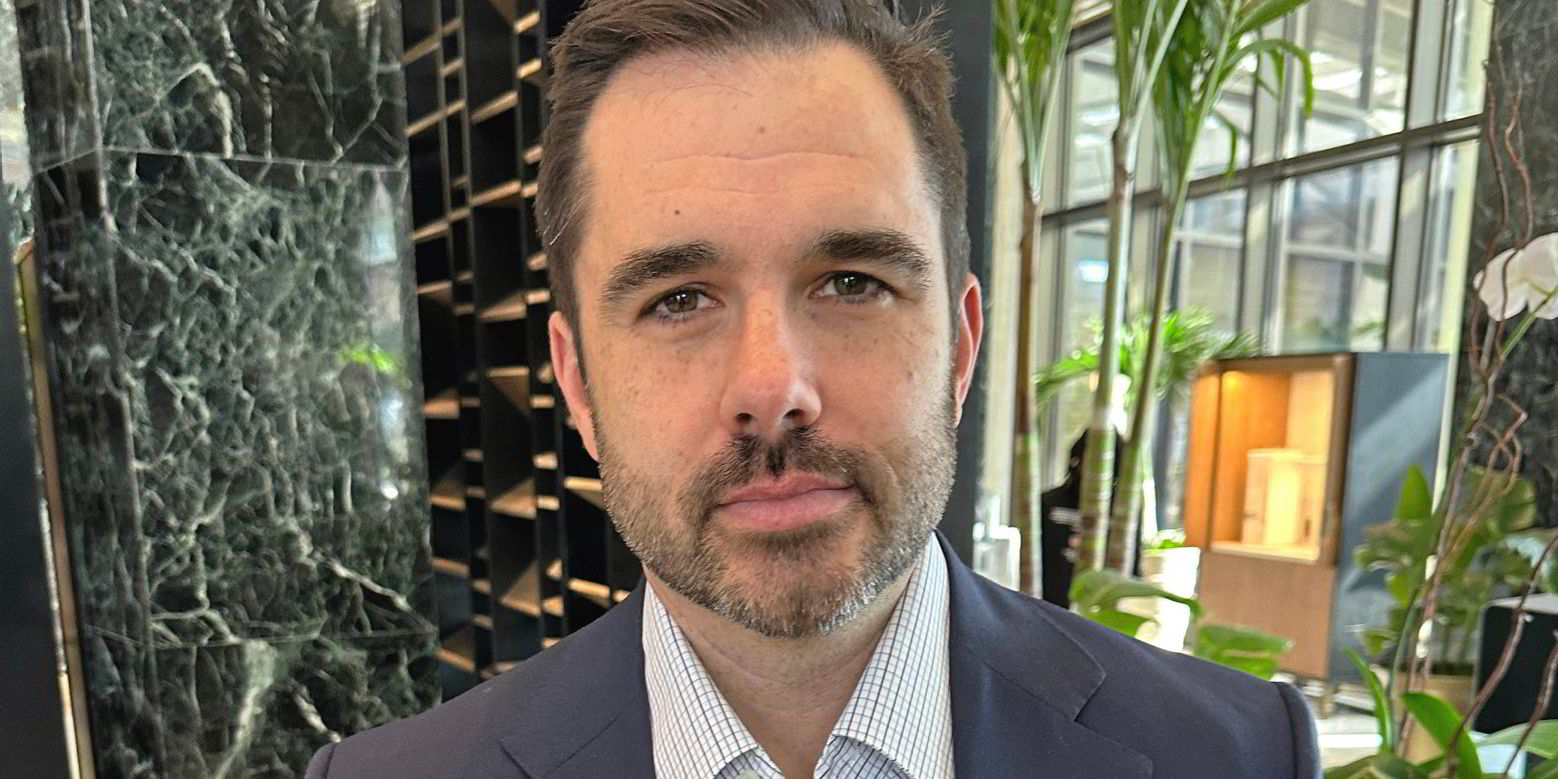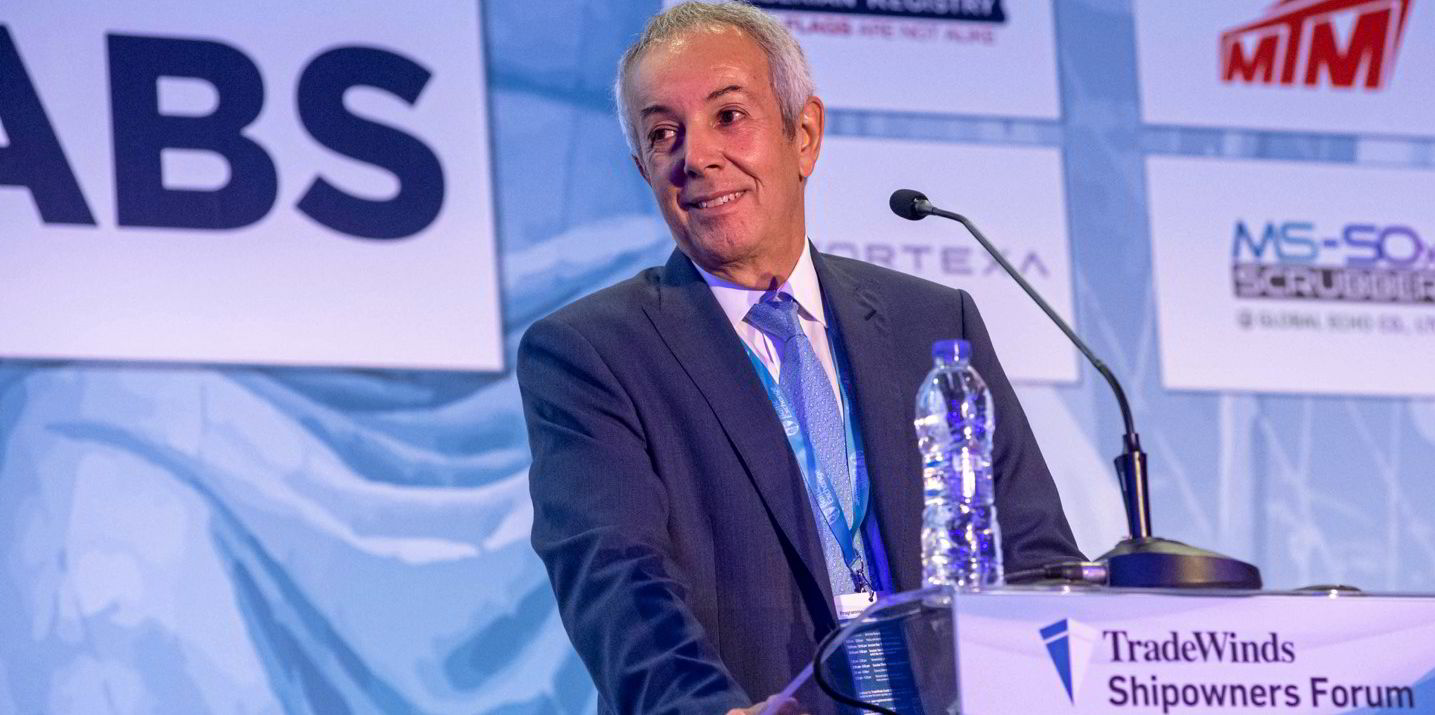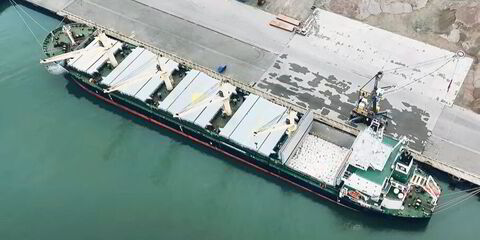That whooshing you just heard is the sound of Eagle Bulk Shipping falling from the sky in shipping’s environmental, social and governance (ESG) landscape.
Veteran equity analyst Michael Webber — the industry’s governance czar — has confirmed to Streetwise that Connecticut-based Eagle Bulk is heading for a steep fall from its accustomed lofty perch near the top of his annual ESG “scorecard”.
Webber’s much-anticipated list of who’s been naughty and nice in following ESG best practices will be released in the coming days, and the analyst shared a preview with Streetwise in an interview this week.

Gary Vogel-led Eagle Bulk has perennially been among shipping’s ESG elite, topping the list of 52 public shipowners from 2018 through 2022, while finishing fourth and second the past two years.
But that was before the events of the past three months, which found Eagle Bulk the target of investor interest — some might say consolidation interest — from fellow New York-listed shipowners Danaos and Castor Maritime.
And that was before longtime investor Oaktree Capital Management decided it was finally time to sell its 28% stake in Eagle Bulk — a block that Streetwise understands drew interest from other “strategic” players before Eagle Bulk snapped it up for $219m.
That defensive measure and Eagle Bulk’s decision to place anti-takeover language informally known as a “poison pill” in its bylaws — well, they are going to cost the dry bulk owner from a reputational standpoint, starting with its plunge from Webber’s top shelf.
“They are the biggest downward mover,” Webber said. “I don’t want to say exactly where they’re going to land, but they’re going to be the biggest slider.”
Eagle Bulk is getting its wings clipped on two counts. One is the poison pill, which is broadly seen as unfriendly to shareholders.
The other is the Oaktree transaction. Webber admits that if he removes his ESG goggles, he understands why Eagle Bulk’s management and board did what they did: “They were backed into a corner, basically.”
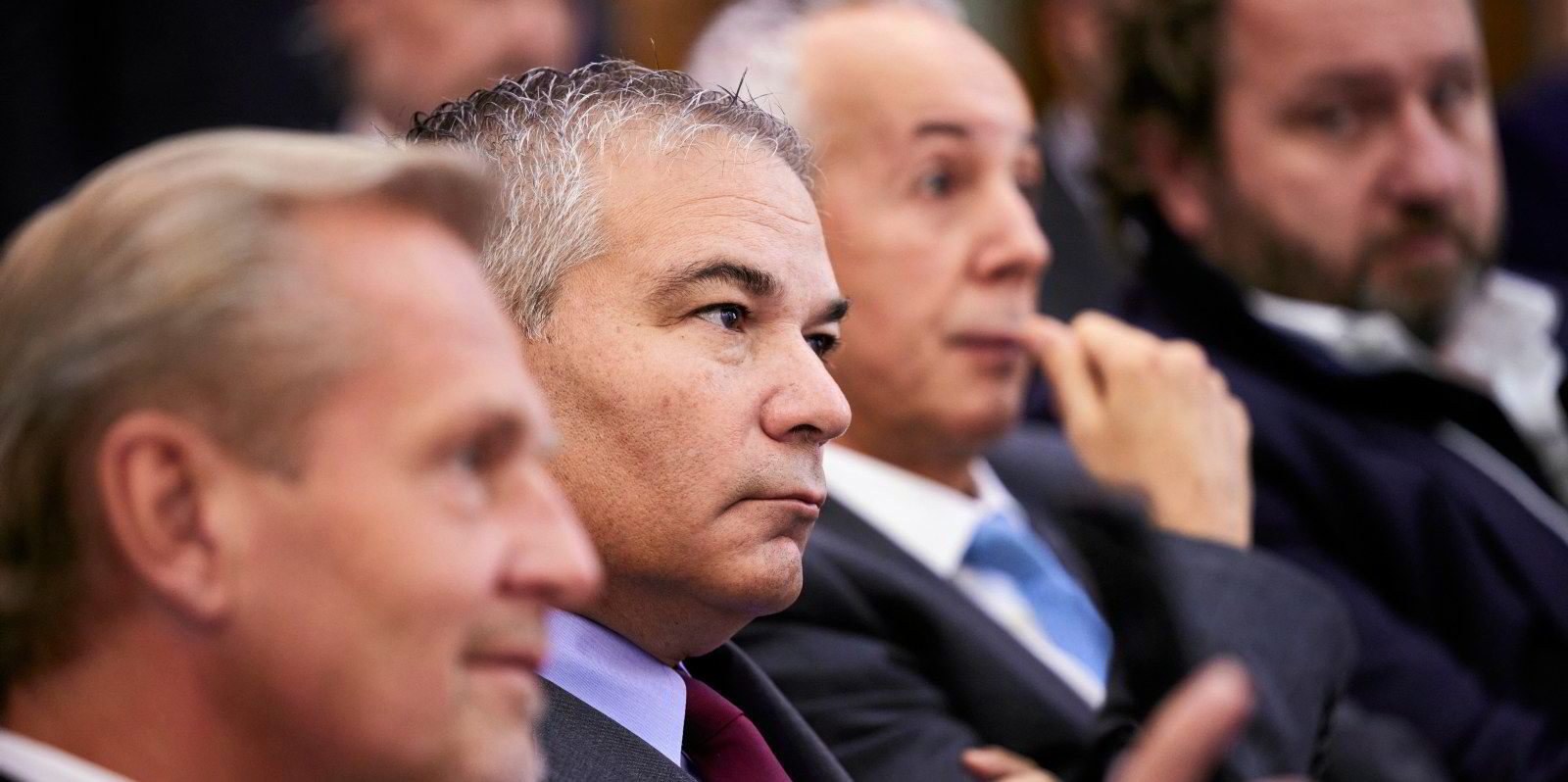
But Webber does not get to remove the ESG goggles when he does this report, which he originated in 2016 while still at Wells Fargo. The analyst now heads his own practice, Webber Research & Advisory.
“If I take the ESG lens off and look at it practically, I would look at this very differently from a public owner buying vessels from their private fleet in a sale-and-purchase deal, which is a more blatant siphoning of value,” Webber said.
“But fundamentally we have to treat this the same way as we treat other related-party transactions from a modeling view. While there are probably good reasons for it, they didn’t open up the tender to all shareholders, just Oaktree. So it’s very important for us to be consistent and binary. Fair is fair.”
Eagle Bulk is also getting dinged for the poison pill, which Webber said “can serve as a hurdle for shareholder value recognition and a tool for management teams to be entrenched”. But the downgrade here is actually secondary to the Oaktree buyout.
So how far will Eagle Bulk fall? There is a precedent in Webber’s treatment of International Seaways, which popped a poison pill last spring as it was being pursued by shipping magnate John Fredriksen’s private investment vehicle.
Seaways dropped from second in 2021 to 10th, and that is without the sort of “related party” issue facing Eagle Bulk.
As an aside, Webber hinted that Seaways may not be done falling in this year’s ratings. The tanker owner took a decision in June to extend the anti-takeover language by three years while lifting the percentage any one investor may accumulate to 20% from the previous 17.5%.
Webber said the extension is probably less of a factor than his rankings being done “on a rolling average”, which means Seaways is still slipping on the weight of its original “pill” decision.
“They’re going to feel the full impact of putting the poison pill in place to begin with,” Webber said.
Public criticism
Some may find a touch of irony in all this shuffling. Two US-based owners with formerly pristine ESG scores are being dragged down the tables for defending themselves against come-ons from European shipowners with lower governance pedigrees — in some cases much lower.
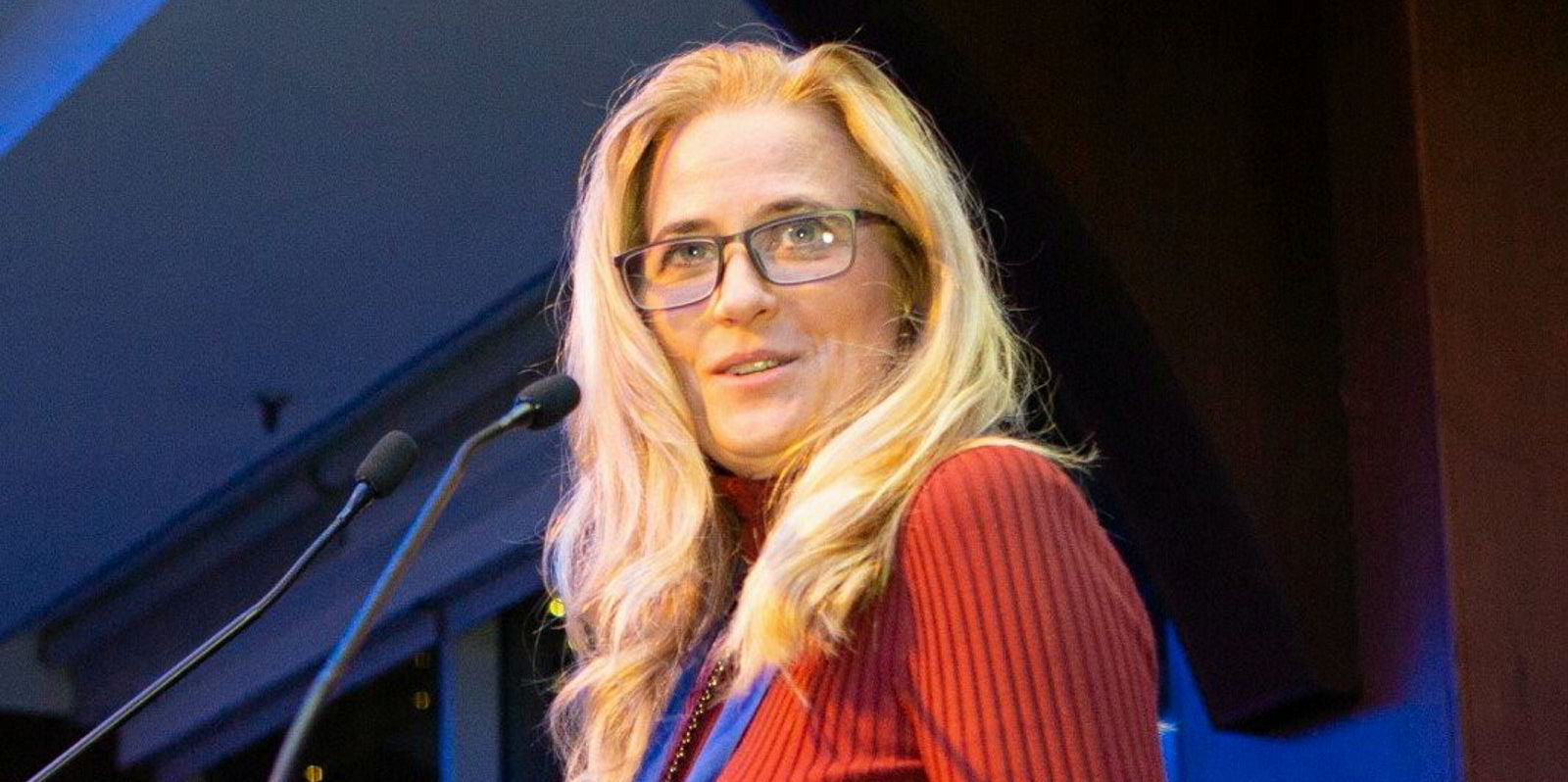
For example, even after Seaways got demoted last year and faced more public criticism from the Fredriksen camp on governance practices, it still ranked 10 spots higher in Webber’s tables than Fredriksen’s public company, Frontline.
And now Eagle Bulk has received a public scolding from Danaos, which perennially ranks in the bottom quartile of the scorecard and last year came 42nd of the 52 companies.
Castor has made no public comments about Eagle Bulk since revealing a 14.99% stake. The Cyprus-based owner entered Webber’s tables for the first time a year ago and finished 52nd, or dead last.
“It’s interesting and, yeah, it is a little ironic,” Webber said. “From a shareholder perspective, companies that have featured governance best practices like Eagle and Seaways do create avenues for acquisition. So it’s ironic that you’ve had companies at times pragmatically try to defend themselves and have it frowned upon.
“The two companies investing in Eagle have much deeper structural conflicts than Eagle does. Even in sliding, it’s not going to bring Eagle down to where those companies are for a governance perspective, to where there are potential conflicts at every turn.”
Webber described Danaos as “a well-run traditional shipowner” that, nonetheless, has built-in structural challenges in governance.
Castor on the other hand is one of the shipowners that have worked with investment bank Maxim Group on a series of often-dilutive equity raises that have drawn increasing public criticism within the industry.
Destructive funding
Webber tends to poke his head up on such matters just once a year when his scorecard surfaces. But he made clear that he is watching the rest of the time, and he praised Ridgebury Tankers chief financial officer Hew Crooks for his attack on Maxim’s deal-making practices at the recent Marine Money Week in New York.
“I appreciate the fact that there are folks like Hew out there who are willing to go to bat when they see something they think is wrong and hurtful and potentially over the line. I don’t think there are many institutional investors on the other side of [the Maxim] trades. That funding mechanism is destructive,” he said.
Webber was tempted to say more but knew it was a better idea to bite his lip. Besides, he had an ESG scorecard to finish. That would do the talking, as it always does, even if there are falling Eagles and sliding Seaways that will be humbled in the process.

More ship finance news
DNB has logged a record profit from corporate clients as shipping lending jumped in the second quarter. The major Norwegian bank said its maritime portfolio increased by NOK 3.51bn ($340m). Click here to read.
China’s Shanghai Jinjiang Shipping (JJ Shipping) is targeting CNY 3bn ($416m) from its IPO to fund fleet expansion. Click here to read.
Analyst Poe Fratt of Alliance Global Partners has been trying to read the tea leaves around investor-base tumult at Connecticut’s Eagle Bulk Shipping, and the more things change, the more he seems to value a steady hand on the tiller. Click here to read.(Copyright)
